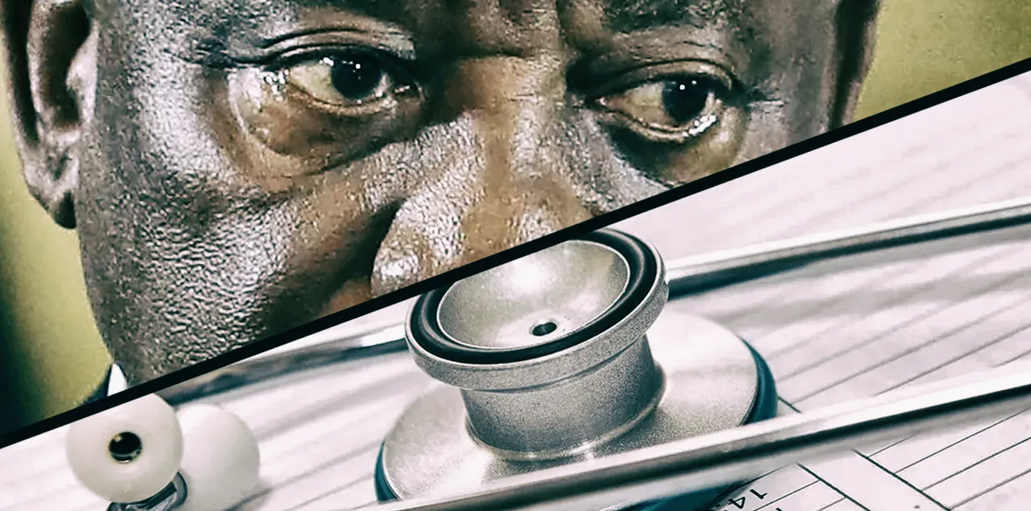President Cyril Ramaphosa says healthcare ‘apartheid’ must end, but opposition parties and the private medical industry are likely to go straight to court over the NHI Bill.
Fourteen days before the elections, President Cyril Ramaphosa will sign the country’s biggest health policy overhaul into law, effectively consigning medical schemes to providing options only for small private elective procedures once implemented.
In a surprise move, Ramaphosa announced that he will sign the National Health Insurance (NHI) Bill into law on Wednesday, 15 May, at 2pm. It is likely to immediately be taken to court by opposition parties and the organised private health industry.
“[It] directs the transformation of South Africa’s healthcare system to achieve universal coverage for health services and, through this, overcomes critical socioeconomic imbalances and inequities of the past,” the Presidency said.
Health Minister Joe Phaahla will hold a Q&A on the same day to answer critical questions about funding (the Bill can’t be passed without a money bill passed by Treasury) and timeframes for implementation. This is unlikely to be a quick process and may take years.
The Bill completely overhauls health and will mean all South Africans will have to sign up to the NHI to allow a pooling of private and public spending on health. It effectively makes private medical insurance moot. This article sets out how the changes will affect you.
It’s a disaster done only for electioneering.
In April, Ramaphosa said he would sign the Bill into law to end “healthcare apartheid”, Bloomberg reported. Gauteng premier Panyaza Lesufi also made the NHI a crucial part of his plan to win the provincial election when he told provincial supporters that they could attend any hospital after the elections. Rebecca Davis fact-checked that promise here.
In South Africa, poor South Africans suffer long queues, long waits for services and a poor standard of healthcare in the public system, while those citizens (16%) with access to private medical care have access to the country’s world-class healthcare at a very high cost.
A business leader who did not want to be quoted said they were not informed about the coming decision. “It’s a disaster done only for electioneering,” he said. The private sector had raised valid concerns about the NHI but he added that he was not surprised by the decision. He said he thought the President’s strategy of signing so close to the elections was so that he could claim the kudos in the final legs of the most tightly contested election for the ANC yet, but that he knew it would be tied up in court for years.
A health market inquiry by the Competition Commission in 2019 found excessive prices and practices across the private health industry value chain. The country’s biggest private medical scheme, Discovery, said late in 2023 that its modelling of the latest version of the NHI Bill showed funding of R200-billion would be needed to implement the law. This would need to be financed either by a VAT increase from 15% to 21.5% or by personal income tax increases of 31% across the board for employed people.
“Collecting R200-billion as a payroll tax would require around R1,072 per employee per month. This increases to around R1,565 per employee per month for only those employed in the formal sector,” said Discovery.
The NHI Bill decision shows again that Ramaphosa’s style and power are waning in influence over the governing party.
In November 2023, Cas Coovadia, CEO of Business Unity SA, said the “self-evident truth” was that there was no money for the NHI Bill. There was no clarity on benefits, contracting terms, capacity, systems, management, governance, or even a plan that began to outline these big questions around a national health system.
“We have also repeatedly cautioned against a single fund for the NHI that, inter alia, will require taxes to be raised to unsustainable levels. This is unaffordable, unsustainable and presents a material economic risk.”
Explainer: The politics of the NHI announcement
The NHI announcement by Ramaphosa shows that he is a president feeling the heat of a campaign that is difficult for the ANC. It is not his style to take any community, especially his supportive business community, by surprise, since he operates by consensus-seeking. This is how he effectively led the process to adopt the Constitution in 1996. The decision on the NHI shows a very different Ramaphosa.
Within the ANC, he is under pressure. The first time this was clear was when the ANC Veterans’ League, the proxy body for Ramaphosa’s renewal faction of the party, could not secure the exclusion of confident party leaders implicated in serious graft from the party’s candidate lists for election.
The NHI Bill decision shows again that Ramaphosa’s style and power are waning in influence over the governing party. Even though he is the face and leader of the party’s campaign, Ramaphosa will likely not see out a term if re-elected in the 29 May polls. This is because the party’s next elective conference in 2027 will choose a new president, and in its practice, the party does not allow two centres of power.
It would want to swear in its new president if it is still the governing party. The NHI decision also shows that a grand coalition with the DA, should the party not reach 50% in the election, is an increasingly unlikely option and that a coalition of parties to the left, like the EFF, is a more likely bet. DM
Stay informed with The Namibian – your source for credible journalism. Get in-depth reporting and opinions for
only N$85 a month. Invest in journalism, invest in democracy –
Subscribe Now!






